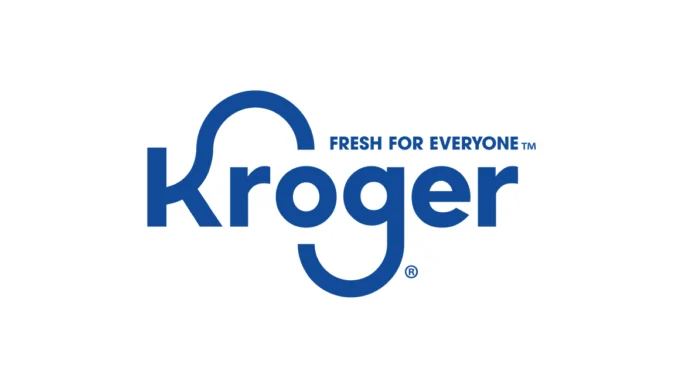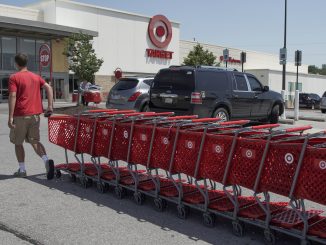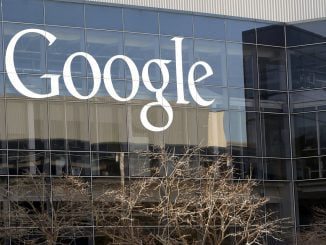
PORTLAND, Ore. — Supermarket chain Albertsons told a federal judge Monday that it might have to lay off workers, close stores and even exit some markets if its planned merger with Kroger cannot proceed.
In October 2022, the two companies proposed the largest supermarket merger in U.S. history. However, the FTC sued to prevent the $24.6 billion deal, alleging it would eliminate competition and raise grocery prices in a time of already high food price inflation.
In the three-week hearing that opened Monday, the FTC seeks a preliminary injunction to block the merger while its complaint goes before an in-house administrative law judge.
“This lawsuit is part of an effort aimed at helping Americans feed their families,” the FTC’s chief trial counsel, Susan Musser, said in her opening arguments.
Musser said Kroger and Albertsons currently compete in 22 states, closely matching each other on price, quality, private label products and services like store pickup. She noted that shoppers benefit from that competition and will lose those benefits if the merger is allowed.
The lawyer said customers are also wary of the merger. In Santa Fe, New Mexico, 278 shoppers wrote to the FTC to express their concerns about a combined Kroger and Albertsons, which would own five of the city’s eight supermarkets.
However, Kroger and Albertsons insist that the FTC’s objections don’t consider the rising competition in the grocery sector. Walmart’s grocery sales totaled $247 billion last year compared to $63 billion in 2003; Costco’s sales have grown more than 400% in the same period.
“Consumers are blurring the line of where they buy groceries,” Albertson’s attorney Enu Mainigi said.
Mainigi said Albertsons’ customers now spend 88 cents of every dollar at competitors that range from Aldi and Trader Joe’s to Dollar General. She said Albertsons can’t compete with larger rivals nationally, but joining forces with Kroger would help it do that.
Kroger attorney Matthew Wolf also defended the proposed merger.
“The savings that come from the merger are obvious and intuitive. Kroger may have the best price on Pepsi. Albertsons may have the best price on Coke. Put them together, they have the best price on both,” Wolf said.
The two sides also disagree on Kroger and Albertsons’ plan to sell 579 stores in places where their stores overlap. The buyer would be C&S Wholesale Grocers, a New Hampshire-based supplier that owns the Grand Union and Piggly Wiggly store brands.
The FTC says C&S is ill-prepared to take on those stores. Laura Hall, the FTC’s senior trial counsel, cited internal documents that indicated C&S executives were skeptical about the quality of the stores they would get and may want the option to sell or close them.
However, Wolf said C&S has the experience and infrastructure to run the divested stores and would be the eighth-largest supermarket company in the U.S. if the merger plan goes through.
The commission also alleges that workers’ wages and benefits would decline if Kroger and Albertsons no longer compete with each other.
Before the hearing, several United Food and Commercial Workers International union members gathered outside the federal courthouse in downtown Portland to oppose the proposed deal.
“Enough is enough,” said Carol McMillian, a bakery manager at a Kroger-owned grocery store in Colorado. “We can no longer stand by and allow corporate greed that puts profit before people. Our workers, our communities and our customers deserve better.”
U.S. District Judge Adrienne Nelson is expected to hear from around 40 witnesses, including the CEOs of Kroger and Albertsons, before deciding whether to issue the preliminary injunction. If she does decide to block the merger temporarily, the FTC’s in-house hearings are scheduled to begin Oct. 1.
But Nelson’s decision will seal the merger’s fate, according to Wolf. He said the FTC’s in-house administrative process is so long and cumbersome that merger deals almost always fall apart before it’s through. Earlier this month, Kroger sued the FTC, alleging that the agency’s internal proceedings were unconstitutional and wants the merger’s merits decided in federal court.
The attorneys general of Arizona, California, the District of Columbia, Illinois, Maryland, Nevada, New Mexico, Oregon and Wyoming joined the case on the FTC’s side. Washington and Colorado filed separate cases in state courts to block the merger.
Based in Cincinnati, Ohio, Kroger operates 2,800 stores in 35 states, including brands like Ralphs, Smith’s and Harris Teeter. Based in Boise, Idaho, Albertsons operates 2,273 stores in 34 states, including brands like Safeway, Jewel Osco and Shaw’s.



